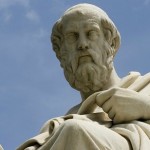We run our website the way we wished the whole internet worked: we provide high quality original content with no ads. We are funded solely by your direct support. Please consider supporting this project.

God’s Regrets and Divine Foreknowledge
One aspect of the portrait of God in Scripture that suggests the future is partly open is the fact that God sometimes regrets how things turn out, even prior decisions that he himself made. For example, in the light of the depravity that characterized humanity prior to the flood, the Bible says that “The Lord was sorry that he made humankind on the earth, and it grieved him to his heart” (Gen 6:6). The genuineness of his regret is evidenced by the fact that the Lord immediately took measures to destroy humanity and start over.
Now, if everything about world history were exhaustively settled and known by God as such before he created the world, God would have known with absolute certainty that humans would come to this wicked state, at just this time, before he created them. But how, then could he authentically regret having made humankind? Doesn’t the fact that God regretted the way things turned out—to the point of starting over—suggest that it wasn’t a foregone conclusion at the time God created human beings that they would fall into this state of wickedness?
Another fascinating example of the Lord’s regret concerns his decision to make Saul king of Israel. Saul had gotten so wicked that the Lord said, “I regret that I made Saul king, for he has turned back from following me” (1 Sam 15:10).
We must wonder if the Lord could truly experience regret for making Saul king if he was absolutely certain that Saul would act the way he did. Could God genuinely confess, “I regret …” if he could in the same breath also proclaim, “I was certain of what Saul would do when I made him king”? I do not see how. Could I genuinely regret, say, purchasing a car because it turned out to run poorly if in fact the car was running exactly as I knew it would when I purchased it? Common sense tells us that we can only regret a decision we made if the decision resulted in an outcome other than what we expected or hoped for when the decision was made.
Some may object that if God regretted a decision he made, he must not be perfectly wise. Wouldn’t God be admitting to making a mistake? Two considerations lead me to answer this question in the negative.
First, it is better to allow Scripture to inform us regarding the nature of divine wisdom than to reinterpret an entire motif in order to square it with our preconceptions of divine wisdom. If God says he regretted a decision, and if Scripture elsewhere tells us that God is perfectly wise, then we should simply conclude that one can be perfectly wise and still regret a decision. Even if this is a mystery to us, it is better to allow the mystery to stand than to assume that we know what God’s wisdom is like and conclude on this basis that God can’t mean what he clearly says.
My second point, however is that in the open view there is little mystery involved in accepting that God can regret his own previous decisions. Once we understand that the future is partly open and that humans are genuinely free, the paradox of how God could experience genuine regret over a decision he made disappears. God made a wise decision because it had the greatest possibility of yielding the best results. God’s decision wasn’t the only variable in this matter, however, there was also the variable of Saul’s will. Saul freely strayed from God’s plan, but that is not God’s fault, nor does it make God’s decision unwise.
—Adapted from God of the Possible, pages 55-57
Category: General
Tags: Divine Foreknowledge, Free Will, God of the Possible, Open Theism, Scripture, Wisdom
Topics: Open Theism
Related Reading

What is the significance of Revelation 22:18?
“If anyone takes away from the words of the book of this prophecy, God will take away that person’s share in the tree of life and in the holy city…” For God to “take away” something he must have given it first. But, as with the previous verse, if God foreknew from whom he would…

How do you respond to Malachi 3:6?
“For I the Lord do not change; therefore you, O children of Jacob, have not perished.” Some cite this verse as evidence that God need never be flexible in his plans and change his mind. But this claim contradicts all the explicit declarations in Scripture which state that God does frequently modify his plans and…

Is Your Christianity Shaped by Plato or the Bible?
The Timaeus is a work that Plato wrote that addresses the questions: “What is that which always is and has no becoming, and what is that which becomes but never is?” (Tim. 28a)? These questions contain one of the most influential – and, in my opinion, one of the most disastrous – philosophical ideas of…

What Unfulfilled Prophesies Say About the Open View
Image by Lori Greig via Flickr Yesterday, we posted about how Messianic prophesies are understood in the open view of the future. Today, this post will look at prophesies that are not fulfilled in the way predicted and what that can tell us about the open view of the future. In John Goldingay’s excellent multi-volume work, Old…

What is the significance of 2 Chronicles 7:12–14?
The Lord says to Solomon, “When I shut up the heavens so that there is no rain, or command the locust to devour the land, or send pestilence among my people, if my people who are called by my name humble themselves, pray, seek my face, and turn from their wicked ways, then I will…

God Clearly Can, So Why Doesn’t He? (podcast)
Leah expects more from God. Should she? Greg confronts God’s inactivity and underperformance. Episode 510 http://traffic.libsyn.com/askgregboyd/Episode_0510.mp3
